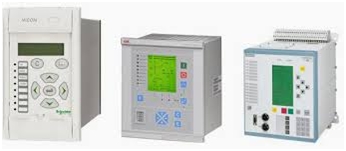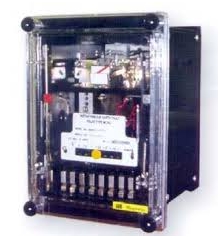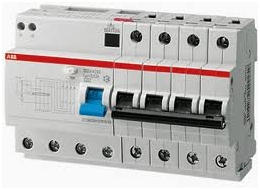Check the great article we received in our boxmail. It’s about Electrical protection and it tells you which are the 4 fundamental qualities every power protection system should possess. Enjoy!
In power generating stations, all most all electrical circuits and equipment tend to generate faults. This is generally caused due to insulation fail between conductors and ground, or due to fail of insulation between the various conductors themselves.
Though the reasons for an insulation fail keep varying, the result is the same, “excess flow of current.” When excess current flows through weak resistances, the inrush current can severely damage the electrical equipment, resulting in extensive operational loses.
Fundamental Objective Of Electrical Protection
The main objective of any power protection system is to isolate a part of the system, or the equipment, that generates fault currents, from the remaining electrical system, to protect other equipment for getting damaged or from failing permanently.
This is the fundamental objective of electrical protection system. This allows the rest of the electrical system to function normally while the faulty parts are being repaired or replaced.
Protection Relays
Protection relays are the most important part of power system protection that help isolate the faulty part from the entire electrical system.
For these protection relays to work efficiently, they should posses certain qualities that enable them to save the non-faulty part from getting severely damaged.
Below mentioned are the 4 fundamental qualities that every electrical protection system (protection relays or circuit breakers) must possess:
1. Dependability
- A protection relay is said to be dependable if it trips only when there is a fault current.
- It can be measured in terms of the ‘certainty’ of its tripping only when it has to trip.
- Dependability of a relay can be improved by improving its sensitivity.
- %Dependability = (No. of correct trippings X 100) / (Total No. of desired trippings)
2. Security
- This is a property of the protection relay that characterizes fault trippings.
- If a relay trips when there is no fault current, then it is said to be insecure.
- It is the parameter that suggests how accurately a particular protection relay is working.
- %Security = (No. of correct trippings X 100) / (Total No. of actual trippings)
3. Selectivity
- Selectivity is the ability of a protection relay to accurately locate the fault and as well as classify it.
- A relay should also be able to suggest whether or not the fault is in its jurisdiction.
- This jurisdiction of a protection relay is known as its protection zone.
- Protection zones are primarily divided into two types: Primary and Secondary. It is important that the primary zones of all the relays overlap in order to make sure that no part of the electrical system remains exposed to the fault currents.
4. Reliability
- This is the quality of the relay that determines its ability of not failing ever.
- This quality can be achieved by redundancy.
- Redundancy in protection depends on the criticality of the equipment to which the protection relay is connected.
- %Reliability = (No. of correct trippings X 100) / (No. of desired trippings + No. of incorrect trips)
Conclusion
Apart from the above mentioned four fundamental qualities, another factor that governs the efficiency of a power system protection is its speed. The chosen relay for a power protection system should be able to sense the fault current as soon as possible and trip the faulty part before the other parts of the system get damaged.
By checking the protection relays for the above mentioned four fundamental qualities, you will be able to install the best power protection system for your electrical equipment. A good protection system not only ensures optimal operation, but also keeps your equipment maintenance budget as low as possible.
Thanks for reading.
Do you think that few qualities are missing? Please share your thoughts with us!



Hi there – the first image on your post does not load.
speed of operation too is important
4 qualities every power protection system should possess by minima voltage (24 Volt).